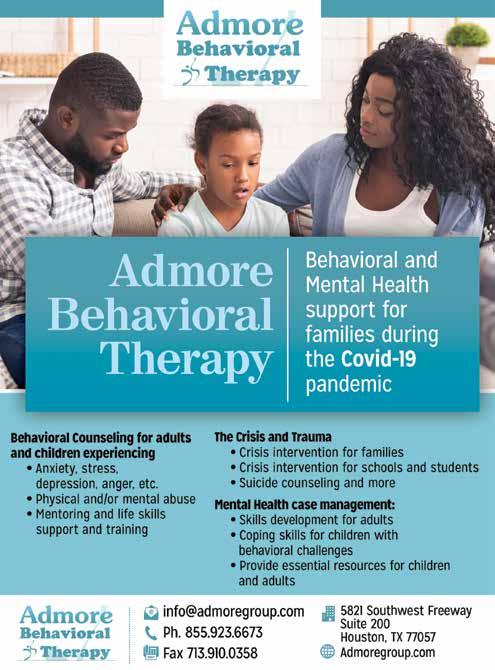






If you're unsure of how to start planning for your financial future through investing, you're far from alone.
In fact, it might surprise you to know that 80 million Americans are interested in investing but don't know where to begin. Yahoo Finance even reports that 54% of millennials have less than $5,000 of their money invested into stocks, bonds, real estate, or other holdings. While many feel they lack the funds, others are intimidated or simply don't know how to initiate solid investments. But that lack of action could hurt their financial standing later in life, according to the report.
you learn about investing by actually investing. Invest in manageable amounts on a regular basis. Rather than waiting till you have a sizable amount like $1,000 to invest each year, make the process seem more doable by setting aside $20 a week or $100 a month. That may seem even easier if you arrange for recurring investments; you'll still have control of what you buy but won't need to log in every time to place a trade.
Don't try to time the market. The choice of whether to sell and take a loss is yours, but consider this: Even professional money managers struggle to time the market successfully over short-term periods. That's why successful investors tend to tune out short-term "noise" and stay focused on their longterm goals.
Rather than trying to time the market, focus on choosing investments you believe in - then stick to your plan.
Be patient with yourself. Try not to get down on yourself if your investing schedule gets off track - that happens to everyone at some point. Just acknowledge it, reflect on it and get ready to regroup tomorrow, next week, or next month. What matters isn't that you missed a milestone or delayed making moves, but that you started in the first place. Understand that any progress adds up over time, no matter how small the increments.
Fortunately, investing doesn't have to be complicated, time-consuming, or financially burdensome, and it's never too late to learn. With that in mind, here are simple suggestions for getting started. Invest the money you won't need today (or tomorrow). The market has historically trended upward over long periods, but it can be unpredictable in the short term.
That's why it's safer to invest money you won't need for immediate needs like your rent, groceries, car payment, or emergency savings. Instead, use the funds available after you've paid your monthly bill, whether they amount to $10 or $100. That rule of thumb lets you plan for the future without jeopardizing your everyday financial well-being.

Understand you can start investing with just $1 This allows you to learn by doing versus feeling like you can't start investing at all. Until recently, the only way you could buy stock was by having the funds to buy an entire share, plus transaction fees. With the new investing app Plynk, you can invest in stock (or exchange-traded fund or mutual fund) with as little as $1 by buying a "fractional share." In essence, you're able to put your money into a portion of a company's stock rather than having to buy the whole share, helping
You don't need to be a financial expert to start on the path toward achieving your future financial goals and to begin investing. Thanks to Plynk, the new, no-experience-required investment app for novices, you can begin with as little as $1. Even better, during the Learn & Earn promotion, available from August 18 through October 20, you can earn up to $50 in bonuses: $10 just for signing up with a brokerage account and linking your bank account, and up to a $40 investment match for learning by doing via the targeted articles in the app. Find more info at plynkinvestcom.
Source: BPT
Life insurance is for people of all ages, not just parents and grandparents. While life insurance needs vary by age and stage of life, it’s a good idea to invest in a life insurance plan while you’re young.
If you’re in your 20s and 30s, life insurance may not seem necessary, but it’s a useful tool to have at any age. Check out these three reasons provided by State Farm® why life insurance should be a priority for young adults.
As a young adult, life insurance probably isn’t top of mind, but it’s the best time to get coverage. Since you’re young and likely healthy, you’ll typically qualify for more affordable premiums. Because you have a relatively long life expectancy, insurers see you as less risk than older individuals.
You don’t have to apply for an expensive, comprehensive policy. Start with a small policy in your 20s that fits your budget to build the foundation of your financial security. You can always expand your coverage throughout your life.
When you experience a life change, like marriage or kids, you should evaluate and expand your coverage as needed. By the time you’re in your 30s, you may have children and a mortgage or plan, which makes the financial protection offered by life insurance more important than ever. For example, life insurance coverage can help cover your children’s education costs if tragedy hits and you are no longer there to provide for them.
If you don’t have kids or a house payment but are planning on expanding your family or purchasing a home, don’t wait to bolster your coverage. Now is the time to make sure you are fully insured, as rates typically rise with age.
It’s not pleasant to think about you or a family member passing. Still, should the unexpected happen, you’ll want to be covered. According to the Life Insurance Marketing and Research Association (LIMRA), too many families are at risk of financial insecurity should their primary wage earner pass away. In fact, the association found that 44% of U.S. households would feel financial hardships within six months of their primary wage earner’s passing.
A life insurance policy provides your family with security in the event of your passing and provides you with peace of mind knowing they’ll be covered after you’re gone. In addition to paying for college and providing income to your loved ones, it can help them cover funeral, burial, and cremation costs. According to State Farm, the average funeral typically costs around $8,000, a hefty expense to try to cover when you’re already grieving the loss of a loved one. Final expense insurance (or burial insurance) can help relieve the financial impact of a funeral.
These are just three reasons why you should invest in a life insurance policy while you’re young and can qualify for lower premiums. If you want to protect your future now but have questions about what coverage you need and can afford, visit www.StateFarm.com or the State Farm app to talk with an insurance agent. Source: BPT
At the recent Create & Cultivate 2022 LA Conference, Maya Sudhakaran, Head of Growth and Acquisition of Plynk, noted that "One of the biggest things I've learned is that perfection is the enemy of good. There is so much intimidation and fear associated with dipping your toes into the world of investing, that most people don't do it."
 By d-mars.com News Provider
By d-mars.com News Provider
Prostate cancer is the second most common type of cancer diagnosed and the second leading cause of cancer death among Americans with prostates. This year alone, more than a quarter million people in the U.S. will receive the diagnosis. With approximately 1 in 6 Black men expected to be diagnosed with prostate cancer in his lifetime compared to 1 in 8 White men, the Black community is disproportionately impacted due to longstanding health inequalities.
To address this issue and save lives, the American Cancer Society recommends Black people born with a prostate speak with their doctor and make an informed decision about screening. There are usually no symptoms until the disease is advanced. Screening can catch cancer early and make it easier to find effective treatment options.
“Health inequalities within the Black community have been well documented,” said Tawana Thomas Johnson, senior vice president, and chief diversity officer at the American Cancer Society. “Reasons for these inequalities are complex but likely rooted in the structural racism that contributes to poverty, under-resourced communities, and the lack of access to high-quality health care. All these factors lead to Black people having a higher cancer burden due to greater
obstacles to cancer prevention, detection, treatment, and survival.”


While death rates from prostate cancer have dropped by more than 50% since the early 1990s, Black people still have the highest death rate for prostate cancer of any racial or ethnic group in the U.S., dying from this type of cancer at a rate double to white people. Studies also show Black people diagnosed with advanced-stage prostate cancer are significantly less likely to receive any treatment compared with white people, even when they have similar health insurance.
“We urge the Black community to work with us to address these alarming statistics,” said Dr. Arif Kamal, the chief patient officer at the American Cancer
Society. “Talk to a doctor about screening and available screening options, and if diagnosed, use us as a resource to learn more about the research and resources available for the best cancer outcomes.”
Talk to a doctor about prostate cancer screening if you are:
Talk to a doctor about prostate cancer screening if you are:
• 40 or older and have more than one close family member who had prostate cancer
• 45 or older and Black or have a close family member who was diagnosed with prostate cancer before they turned 65 50 or older and have no family history of prostate cancer

From 1991 to 2019, there has been a 32% decline in cancer mortality due to early detection, research, advocacy, and patient support. The American Cancer Society offers multiple resources to support patients and improve cancer outcomes. This includes a 24/7 cancer helpline, free transportation to treatment, free lodging if treatment is needed away from home, online patient and caregiver peer support communities and information on current research.
Learn more at cancer.org/partneringforlife.
Source: National Newspaper Publishers Association (NNPA)
